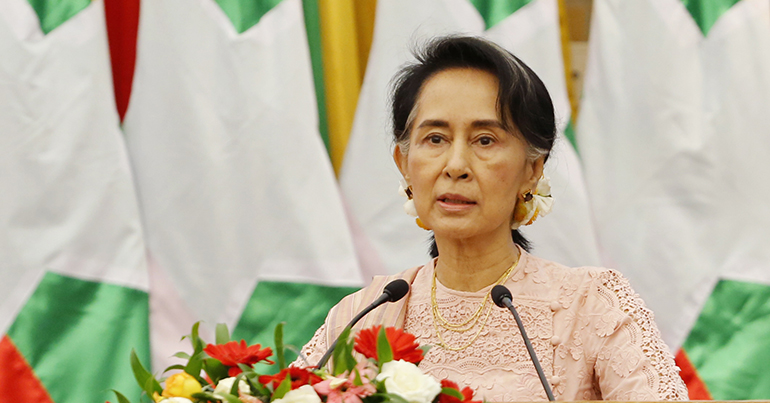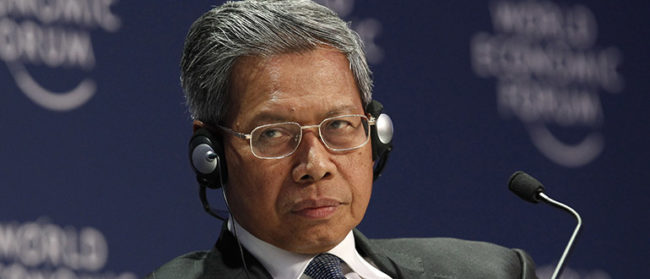Facing mounting criticism for failing to speak out against human rights abuses against the Rohingya ethnic minority, Myanmar leader Aung San Suu Kyi gave a rare public defence in a wide-ranging interview with the BBC

Amid widespread international criticism of her handling of the Rohingya crisis, denying alleged atrocities in the face of growing evidence, Aung San Suu Kyi has denied that “ethnic cleansing” is taking place in troubled Rakhine State.
“I think ethnic cleansing is too strong an expression to use for what is happening,” Suu Kyi told the BBC. “I think there is a lot of hostility there. It is Muslims killing Muslims as well, if they think they are collaborating with the authorities.”
“It is not just a matter of ethnic cleansing as you put it,” she continued. “It is a matter of people on different sides of the divide, and this divide we are trying to close up.”
Suu Kyi was keen to highlight that her administration had made inroads with their citizenship verification process and that the situation was “calm” before “totally unexpected attacks on police outposts for no reason” derailed the process.
The response by Myanmar’s military — the Tatmadaw — to the October border attacks, which were masterminded by Ata Ullah, a Karachi-born ethnic Rohingya who grew up in Saudi Arabia, has been widely condemned by human rights groups, who have accused soldiers of raping and murdering innocent civilians.
But in her interview with BBC special correspondent Fergal Keane, Suu Kyi denied allegations that the army were free to rape, pillage and torture, adding that she wished to reduce the military’s power as enshrined in the current constitution, a process she hoped would take “no more than a few years”.
The interview comes days after the UN’s announcement that it would seek to send a fact-finding mission to Myanmar to investigate alleged atrocities committed by security forces.
Myanmar’s government, which is already conducting its own inquiry into reports of military human rights abuses, condemned the UN’s decision as a breach of its sovereignty. The domestic commission released an interim report on 16 March and is expected to make its final recommendations to the government in late 2017.
Asked what was stopping her from travelling to Rakhine State to discuss the situation with affected Rohingya Muslims, Suu Kyi replied: “I want to give those who are working in Rakhine a chance to show that they are capable of it. I think there’s not enough confidence in what our people are capable of doing.”
Aung San Suu Kyi: ‘Ethnic cleansing is too strong an expression’ for crisis in Rakhine State
Facing mounting criticism for failing to speak out against human rights abuses against the Rohingya ethnic minority, Myanmar leader Aung San Suu Kyi gave a rare public defence in a wide-ranging interview with the BBC Myanmar's State Counselor Aung San Suu Kyi delivers a speech during a ceremony for the National Health Plan (2017-2021) at the Myanmar International Convention Center in Naypyitaw, Myanmar, 31 March 2017. Photo: EPA/Hein Htet

